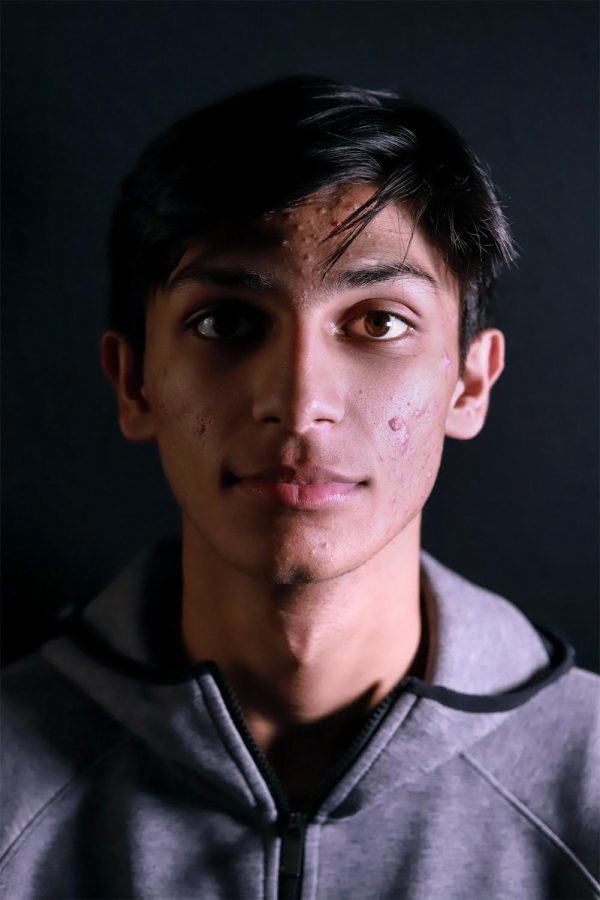The Natural Mask
January 27, 2022
Scrolling through your TikTok for you page, Instagram feed, Pinterest homepage, all you see is flawless skin. Blemish-free, glass skin. Then you look in the mirror and wonder: Where is the representation?
For senior Layo Akinyede and other students on our campus, acne can feel like a flaw as opposed to a natural skin issue.
“It was on my face and I couldn’t hide it,” Akinyede said. “It’s the first thing people notice when they meet you. People think I have bad hygiene or don’t take care of my skin, but in reality, it’s not something I can control.”
According to Nemours KidsHealth, acne is a “natural skin condition that approximately 80 percent of teens between the ages of 11 to 13 suffer” from for the majority of their teenage years. Along with negative impacts on self confidence, acne can cause anxiety and depression in adolescents.
Social media is a horrific place for those with acne. Numerous beauty brands have been shown to conceal acne in the media, and the images young people see online don’t help.
The independent news organization, The Conversation, reported that model and skincare activist, Kajeeda Khan, was fired from a 2018 L’Oreal hair ad due to her acne. The brand later emailed Khan, stating that they “can’t be involved with people with skin issues.”
Additionally, in a 2010 Real Beauty Campaign, Dove stated that the women for their campaign must have “flawless skin,” “nice bodies” and that ‘beautiful hair and skin is a must.’
BRANDING BEAUTY
Beauty brands such as MAC, Becca, Ralph Lauren, Olay, CVS and Fenty Beauty are known to use extreme skin retouching over acne in commercials in effort to smoothen the skin, according to The Conversation.
Many people around the world have begun photoshopping their own personal images as well. The app FaceTune, which can conceal and blur imperfections, as well as realistically alter facial features, became Apple’s most popular paid app after 2017.
With large beauty brands spreading a stigma that acne and skin imperfections are something to hide, how can we be confident within our natural skin? Teens are marketed skincare to fit “young, teenage skin” with moisturizers, acne serums, eye creams, overnight masks, treatments, pimple patches and more. So students wonder why acne remains so concealed and looked down upon on social media.
“It’s just so unfair,” junior Hasnaa Salama said. “Especially in this day and age, all skin types could easily be normalized. I feel like the lack of skin diversity shown in the media is one of the main causes of low self esteem for those that have acne. Skin is never perfect, but for some reason I always see it portrayed that way on social media. How do brands even expect to market a skincare product that’s for teens with acne using models with flawless skin?”
According to a survey conducted by Cutanea Life Sciences, a USA based pharmaceutical company, 71 percent of teens with acne claim that it has a negative impact on their self confidence.
“My acne really does kill my confidence,” Akinyede said. “I’ve had acne since late elementary school, so I’ve dealt with the mental effects for as long as I can remember.”
As a result, 51 percent of teens with acne said that social media makes having acne more difficult. This can lead teens to avoid social interactions and video chatting or feel less confident as a result of their acne.
“As school counselors, we see everyday the profound impact that acne can have on teenagers’ self image, confidence, and relationships at an already challenging time in their life,” Anne LP Flenner, a professional school counselor and former Florida Counseling Association president, told the Associated Press. “The teens that I interact with as a school counselor are very active, on the go and into technology, but we would all like our teens to spend less time on social media.”
Acne is uncontrollable for a large percentage of teens in America. Through poor online representation and negative stigma around skin issues, acne becomes a burden for numerous adolescents. In reality, acne is completely natural and should be normalized.
“Acne feels like a mask over my face that I just can’t get rid of,” Akinyede said. ”My self esteem has slowly gotten better as my acne goes away, but I wish acne was normalized and didn’t impact how I felt about myself.”



